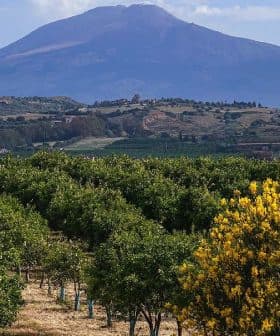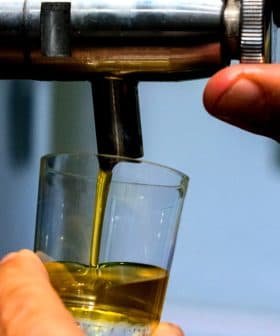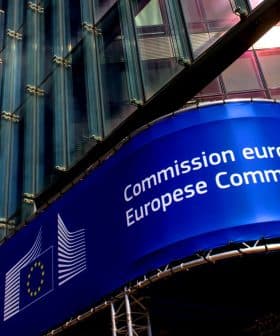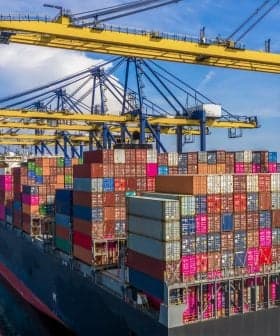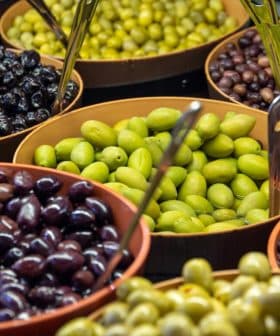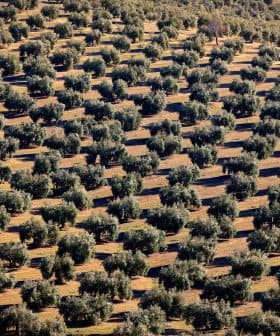European Bank Provides New Funds for Olive Growing and Irrigation Projects in Tunisia
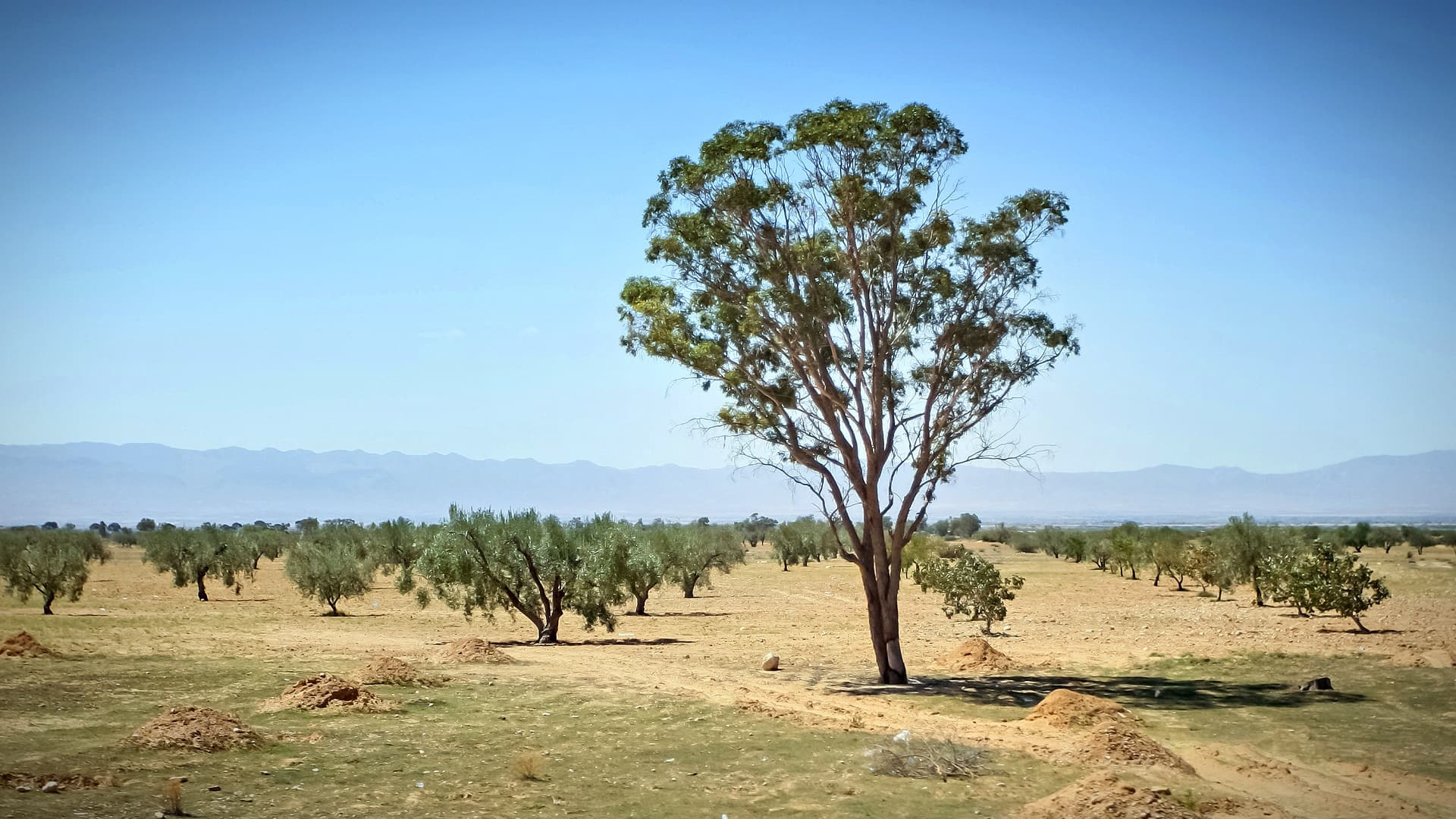
Despite a decrease in olive oil production in Tunisia in 2021, the country’s olive oil exports still accounted for 37 percent of all food and agricultural exports. International investments and support have helped Tunisia improve olive oil quality and increase exports, with the European Bank for Reconstruction and Development providing funds to strengthen the olive farming sector and improve access to irrigation water for farmers in southern regions.
Tunisian olive oil confirmed its pivotal role among the country’s agricultural products in 2021.
Despite a diminished harvest, olive oil still constitutes 37 percent of all food and agricultural exports.
Olive growing is one of the most relevant agricultural activities and it exerts a pivotal role for its socio-cultural ramifications, fostering development and curtailing depopulation in rural areas.
According to the newly released figures of the National Institute of Statistics, Tunisia exported 198,400 tons of olive oil in 2021, down from the 386,900 tons of 2020.
See Also:Olive Oil Trade NewsWhile the reduced volumes affected overall export value, which dropped 26 percent, the National Observatory on Agriculture (ONAGRI) noted that olive oil price per kilogram skyrocketed 45 percent in 202, compared with the previous year, to Tunisian Dinar (TND) 8.62 equal to €2.63.
In 2021, thanks to ongoing bureaucracy reforms and international investments, Tunisian olive oil producers and bottlers are forecasted to double their olive oil exports in the next five years.
Along with rising exports, olive oil quality in Tunisia has also increased in recent years, with producers earning record-high numbers of awards at the NYIOOC World Olive Oil Competition in each of the last four years.
See Also:The Best Olive Oils from TunisiaAmong the reasons for Tunisia’s increasing influence in the global olive oil sector are international investments and support that have helped spread olive growing in the country and adopt modern farming techniques and machinery.
In recent weeks, the European Bank for Reconstruction and Development (EBRD) has confirmed a new €6.2 million loan to the Compagnie Générale des Industries Alimentaires (COGIA) to help strengthen the olive farming sector in the country.
COGIA, one of the country’s major food manufacturers, will use those funds to foster production, bottling and exports. In support of the country’s exports, there have been six EBRD-funded projects for olive growing in Tunisia since 2017.
Since the start of its operations in Tunisia in 2012, the EBRD confirmed that it has invested more than €1.3 billion in 55 projects in the country.
On top of the funds directed to local farming, the EBRD has also approved a €49 million loan to the Tunisian Ministry of Agriculture, Hydraulic Resources and Fisheries destined to improve access to irrigation waters for more than 6,800 farmers and their families.
Those funds will help reinstate deep wells and ageing water infrastructures in southern regions such as Gabès, Gafsa, Kebili and Tozeur whose almost 40 oases are “the primary source of employment and income in the region, with irrigated agriculture providing jobs to 35 percent of the working population,” the EBRD wrote in a press note.
The EBRD project will follow the path of the strategic development plans announced by Tunisia for sustainable water management in the southern regions.
The modernization of the infrastructures, “will also address the depletion of non-renewable groundwater resources through the development of a long-term sustainable strategy to address the water scarcity in the region, as well as a training program for farmers to promote more sustainable agricultural practices and water management and identify alternative income sources.”
See Also:U.K. Drops Tariffs on Tunisian Olive Oil Imports After Signing Trade DealAccording to the president of the Tunisian Union of Agriculture and Fisheries, Abdelmajid Ezzar, more should be done to ensure Tunisian olive oil prices reflect the high quality of the local product.
He added that Tunisian olive oil was sold on the international markets in 2021 at a price around €1.75, way less than Italian olive oil, which often fared above €3.50.
Most Tunisian olive oil exports are destined for the European Union as part of the duty-free quota of 56,700 tons. The 27-member bloc is also among the main sponsors of the EBRD itself and some within E.U. have begun asking for a review of the current approach.
“Tunisia is one of those countries where olive farming has seen a steady growth in recent years,” Massimiliano Giansanti, the president of the Italian national farming organization Confagricoltura, told Olive Oil Times.
“Its olive growing surface reaches 20 percent of the whole territory, and its production is now close to six percent of global yields,” he added. “Olive growing is one of the most relevant agricultural activities and it exerts a pivotal role for its socio-cultural ramifications, fostering development and curtailing depopulation in rural areas.”
Giansanti added how the current E.U. measures to sustain Tunisian exports date back to the aftermath of the 2015 terrorist attack in Port El Kantaoui, during which 38 people were killed after gunmen opened fire at a popular tourist resort. The attacks prompted the European Union to move in support of the country’s economy.
However, some members of the olive oil sector believe that enough time has passed and conditions have changed.
“Confagricoltura has been active in trying to avoid the renewal of the facilitated conditions for Tunisian exports to the European Union,” Giansanti said.
Several politicians are also asking the European Commission to investigate the matter.
In a recent hearing, Raffaele Fitto, president of the Italian ECR-Fratelli d’Italia group, has asked Brussels“to evaluate potential effects of the adopted measures on the European olive oil sector” and to consider “a temporary suspension of the agreements between E.U. and Tunisia.”
“Tunisia’s support program for olive growing is not in question, as well as other E.U. interventions for the least developed countries,” added Giansanti, whose association has brought the issue to Italian and European regulators.
“We understand the need for the European Union to be supportive of a country, like Tunisia, weakened by terrorist acts and by political or economic instability due to internal events,” he said.
“However, we have to evaluate whether the incentives for the development of the supply chain can coexist with the duties facilitations for Tunisian olive oil exports to the European market,” Giansanti concluded.


